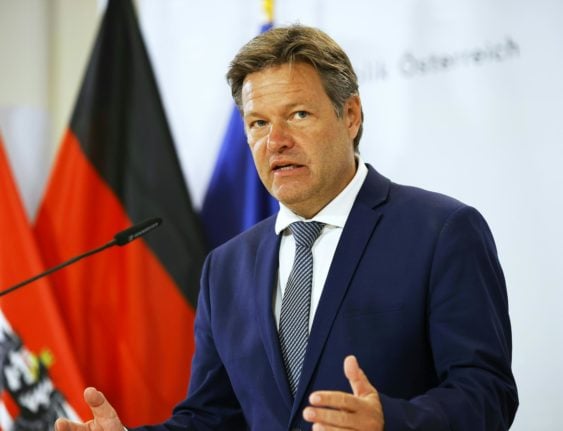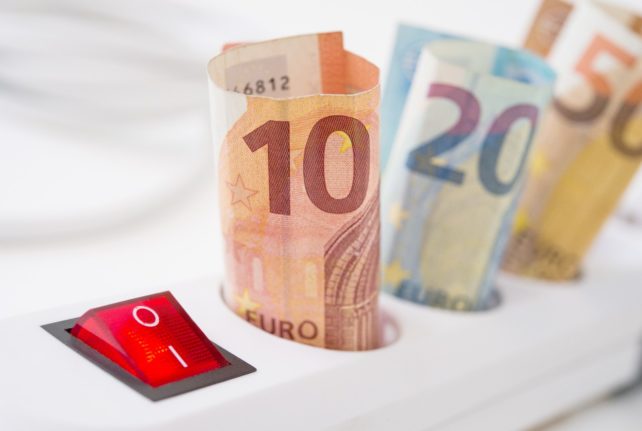Speaking during a video statement, Habeck said that measures would have to be taken across the board – in homes, offices and governmental buildings.
Habeck, of the Green party, warned that the coming two winters would be difficult for people in Germany and the rest of Europe.
He said “solidarity” within the EU was needed. “This winter, and also the next one, will present Europe with great challenges.”
As part of the so-called ‘energy security package’, Germany says higher filling level targets are needed for gas storage facilities.
By September 1st, gas storage facilities in Germany will have to reach 75 percent, and by November 1st they should be 95 percent full. Up to now, the government said a filling level of 90 percent by November 1st was needed.
As of Wednesday, German gas reserves were about 65 percent of capacity according to official estimates.
READ ALSO: ‘Save now’: German energy regulator warns gas bills could triple

Turn down heating, work from home
Habeck and his ministry also announced planned changes in the law that could affect private consumers.
Currently, there can be contractual obligations to maintain a minimum temperature in rented homes, the ministry said: “This means that if these tenants want to heat (rooms) less, they are in breach of their tenancy agreements”.
In consultation with other government departments, the ministry said, this regulation will likely be temporarily suspended “so that tenants who want to save energy and turn down the heating are allowed to do so”.
Homeowners will also not be allowed to heat private pools with gas “over this winter”, according to plans.
READ ALSO: Cost of living: How to save money in Germany this summer
When asked about any possible controlling of measures, Habeck said many restrictions during the Covid pandemic weren’t checked “and yet they worked, people kept to them”.
“But I don’t think the police will now be checking if the pools are warm,” he said.
His ministry also said that it makes sense not to heat rooms where people do not regularly spend time, such as corridors, large halls, foyers or others rooms – unless there are safety-related requirements.
For public facilities and office buildings, this will be regulated.
During the press conference Habeck also touched on other possible measures to save energy, such as calling on people to work from home.
“We need to talk about how we save energy through increased use of home office,” he said. However, Habeck said there were no plans at the moment to order this as a rule, but rather let employees and employers discuss it.
Habeck also announced a mandatory heating check, which owners of gas heating systems will have to organise in order to optimise their heating. In apartment buildings, there should also be hydraulic balancing so that the heating water is optimally distributed, he said.
To secure the supply, the Economics Minister also wants to reconnect lignite-fired power plants to the grid.
In his video address, Habeck angrily dismissed Russian claims that it was a guarantor of Europe’s energy supply, saying that Moscow had become a growing “insecurity factor” in the sector.
“In fact, Russia is using the great power we gave it to blackmail Europe and Germany,” Habeck said.
READ ALSO: Russia resumes ‘unstable’ gas supplies to Germany via Nord Stream
Vocabulary
Energy security package – Paket zur Energiesicherung
Measures – (die) Maßnahmen
Gas storage – (der) Gasspeicher
Consumers – (die) Verbraucher
Gas shortage – (der) Gasmangel
We’re aiming to help our readers improve their German by translating vocabulary from some of our news stories. Did you find this article useful? Let us know.



 Please whitelist us to continue reading.
Please whitelist us to continue reading.
Member comments